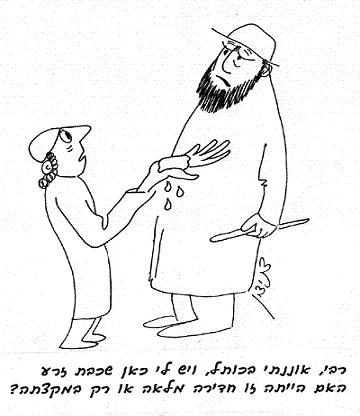
Sexual relations have many religious implications: adultery, incest, a cohen and a divorced woman, a Jewish man with a woman born of a forbidden relationship, etc. There is also the act of acquisition through sexual relations, such as marriage and levirate marriages. Therefore the early sages made a legal ruling about what is considered sexual relations for the above purposes. They ruled that there is no need for full penetration of the male sexual organ into the female for the act to be considered sexual relations; partial penetration is sufficient. The scholars asked for the Scriptural source of this ruling. Answer: It is written “If a man lies with a woman during her sickness and uncovers her nakedness, he has exposed the source of her flow” (Leviticus 20:18).
The scholars asked: The “source” is appropriate as a measure for serious acts of sexual impropriety (punished by karet) like having sexual relations with a menstruating woman, but from where do we learn about less serious acts of sexual impropriety, like a cohen and a divorcee or the daughter of a forbidden relationship and a Jewish man? Answer: The Scriptures specified full penetration in the case of a designated maidservant, which implies that in cases both less serious and more serious, partial penetration is sufficient. How do we know that full penetration is required of one who has sexual relations with a designated maidservant? It is written, “Whoever lies carnally with a woman who is betrothed to a man as a concubine” (Leviticus 19:20). The word carnally implies that he ejaculated following full penetration.
(Babylonian Talmud, Tractate Yevamot 54a-55a)
